(Warning: Some links contain graphic material.)
On October 7, 2017, James Martin, SJ, posted an article by University of San Diego Professor Emily Reimer-Barry to his official Facebook timeline. Reimer-Barry is a graduate of Loyola University Chicago and is currently an Associate Professor of Christian Ethics at USD, where she is also the Chair of the Department of Theology and Religious Studies. Earlier this year, James Martin participated in a conversation with Patrick Hornbeck, the Chair of the Theology Department at Fordham University; Hornbeck married his same-sex partner in 2015. In 2016, Reimer-Barry served as a theological adviser to the controversial diocesan synod on the family formed by Bishop James McElroy. She once referred to Pope Francis’s apostolic exhortation Amoris Laetitia as “wonderfully complicated.” She continued: “…this document becomes a celebration of conscience and a rejection of a legalistic paradigm.”
Concerning the Catholic Church’s teachings on homosexuality, she wrote:
…it must be said that Catholic teachings are part of a dynamic faith tradition that must learn from new data as it is presented. The best theologians of the tradition…did so as people in particular historical-cultural contexts. As a tradition that has developed over time, Catholicism must engage the latest research in sociology, psychology, biology, and the rest of the sciences. And there is still so much we do not understand about our sexuality.
In 2015, she supported USD students who staged a campus “drag show.”
In the article which James Martin posted, entitled “Toxic Shame And Sin-Talk: Church Militant Has It All Wrong,” Reimer-Barry takes aim at certain critics of Martin and then she proceeds to vilify so called “conversion therapy,” more precisely reparative therapy, as a “poisonous way of thinking” that merely “reinforces shame for the LGBTQ person” which “can stifle the person’s growth and integration.” James Martin made a similar argument, arguing that only those with homosexual tendencies who fully accept and embrace their sexual orientation are truly “integrated;” from his August 29, 2017, interview with Brandon Ambrosino:
I know just for the record that a lot of the people who are critiquing me online are self-professed…former gays. So it’s a lot of former gay people. And I would say that there’s a lot of conflict going on. So it’s sad because what happens is their own junk inside gets focused outwards on people who are actually trying to live a more integrated life.
Reimer-Barry goes on to employ scare tactics against Catholic parents who might not fully accept the homosexual orientation of their children; citing a study which claims that LGBT children who experience forms of “rejection” from their families are more likely to attempt suicide. Yet as concerning as these statistics are, they do not explain why mental health disorders remain persistently higher among adult gay men and women as compared with their heterosexual counterparts; even in nations (Sweden and the Netherlands) with a long history of gay affirmation and civil rights.
She then includes an excerpt from gay poet Frank Bidart’s “Queer.” Although Bidart was raised a Catholic, he later left the Church, essentially choosing gay over the religion of his childhood. In an interview Bidart said:
I grew up a Catholic. I’m no longer a Catholic. Something very fundamental to the Catholicism that at least I grew up in was the notion that there is a kind of war between the mind and the body, between the spirit and the body.
In addition, Reimer-Barry quotes a prayer from Patrick Cheng’s book “Rainbow Theology.” According to Cheng, one of the goals of the book is to “rethink the enterprise of Christian theology by moving the experiences of LGBTIQ people of color from the margins to the center.” The main thesis of the book includes a lengthy discussion of the various colors which are incorporated in the “rainbow flag:”
The book will also argue that these rainbow themes are not only central to the queer of color experience, but they are also central to Christian theology itself.
Cheng states:
From a Christological perspective, I have argued that the gay Asian male body – “like the bruised and battered corpus of Jesus Christ on the cross” – might serve an “atoning purpose” by “decolonizing the racism and homophobia of contemporary Christian theologies.”
Cheng also praises the homoerotic religious imagery of Spanish photographer Fernando Bayona Gonzalez; in particular, a clearly sexually suggestive picture of Christ and the Apostle Thomas.
Patrick Cheng is an Episcopal Priest currently stationed at The Church of the Transfiguration in New York City. According to his book “From Sin to Amazing Grace: Discovering the Queer Christ,” although he was raised “a devout Roman Catholic,” Cheng left the Church because he disagreed with Catholic teachings regarding homosexuality. For fifteen years, he didn’t walk into a church. He wrote: “In those intervening years, I had met and fallen in love with my now-husband, Michael. Through Michael, I had experienced the power of God’s incarnational love in a way that no theology book or doctrine could ever convey.”
Here are some excerpts from Cheng’s “Queer Christ:”
“Over the last few decades, many LGBT theologians have written about the Queer Christ. That is, they have responded to Jesus’ question of “who do you say that I am?,” in the same way in which theologians from other identity groups have written about the Black Christ, the Feminist Christ, the Asian Christ, and the contextual Christs. Thus, the primary implication of a move to a Christ-centered model of sin and grace for LGBT people is to place the Queer Christ at the center of thinking about sin and grace. In other words, both sin and grace are defined in terms of the Queer Christ.”
“If sin is conformity, then grace in the context of the Transgressive Christ can be understood as deviance, or the transgression of social, legal, and one’s religious boundaries and norms.”
“I have often thought that my own queerness has been an incredible gift of grace from God.”
“…as a manifestation of the grace of mutuality in light of the Erotic Christ. The grace of mutuality is not limited to couples or dyads; it can take the form of many different relational configurations.”
In his cosmology of the “Queer Christ,” Cheng proposes “seven new deadly queer sins:” exploitation, the closet, apathy, conformity, shame, isolation, singularity. In Cheng’s world view, it is a sin for an LGBT person to not “come-out,” to remain politically inactive in terms of LGBT advocacy, or conform to traditional Christian moral standards with regards to homosexuality.
In his earlier book, “Radical Love: An Introduction to Queer Theology,” published in 2011, Cheng discussed “God as the Divine ‘Top.’” In gay slang “top” refers to the insertive partner during anal sex.
Cheng wrote:
Queer theologians have parodied God’s traditional divine attribute of omnipotence – that is, God’s all powerful nature – by superimposing sexual roles on God…the God the Hebrew Bible, can be understood as being the “top” in a homoerotic relationship with David, the king of Israel – akin to that of a warrior chief and his boy companion.
He also wrote at length about the Blessed Virgin Mary:
Indeed, the Virgin Marty can be understood as the antithesis of “family values” insofar as she erases the boundaries between traditional family categories of parent, spouse, and child. This is significant because we can understand Mary as deconstructing gender and family roles as opposed to merely reinforcing them as the Roman Catholic church and fundamentalist Christians would have us believe.
In a 2012 article for The Huffington Post, Cheng wrote:
Same-sex marriages are sacramental because they are a reflection of the larger grace-filled relationship between God and humanity. The classical theological definition of a sacrament — including baptism, eucharist and marriage — is that it is a visible and external sign of God’s invisible grace. Same-sex marriages are holy because they are vehicles in which we can experience and gain a deeper understanding of God’s unearned and unmerited love for us.
Much of the “Queer Theology” expounded by Cheng has already made its way into the Catholic Church. Donal Godfrey, S.J., has spoken and written about both a “gay” Jesus as well as a transgender God. In addition, the LGBT ministries at St. Cecilia Parish in Boston and at St. Paul the Apostle Church in New York City, have actively promoted the idea of “queer saints” or even a “queer” Virgin Mary.” Not coincidentally, James Martin has praised and recently spoken to both LGBT ministries at each of these parishes.
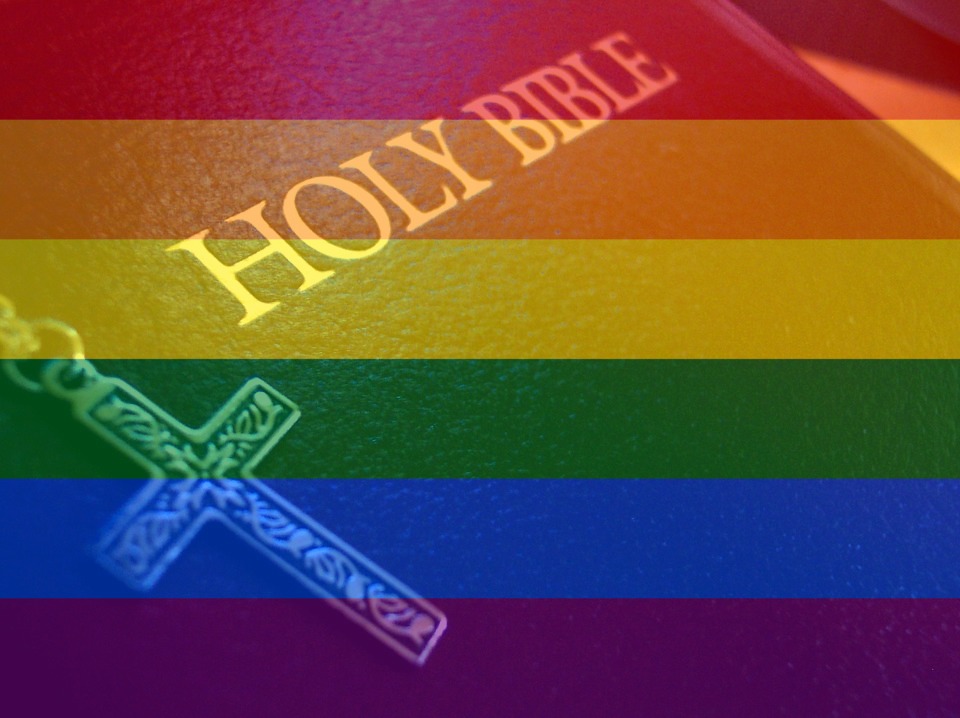

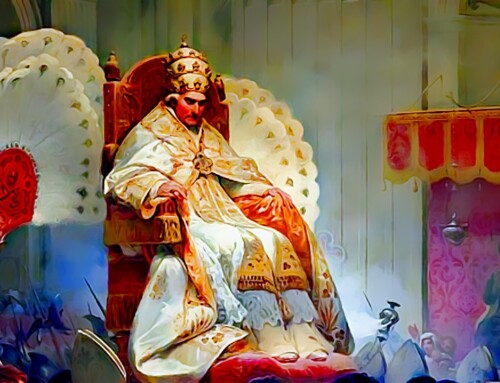
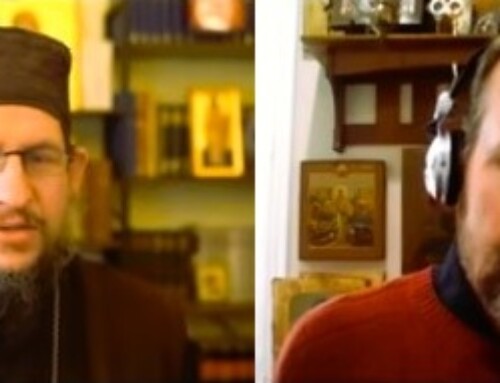
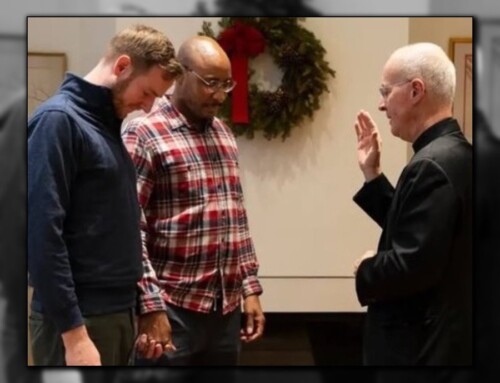
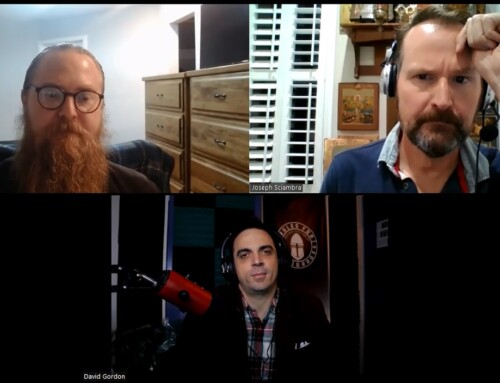
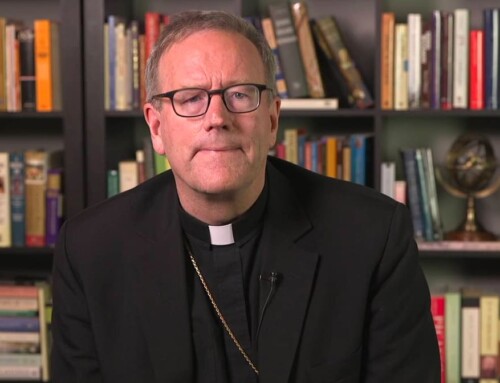
May God have mercy on these poor people!! May He open their eyes to the sheer evil they are promoting. They are so very blinded by the darkness, and they are actively and publicly doing the bidding of Satan himself. The diabolic situation has come to such a fever pitch, as to mirror in them the face of Satan himself.
Well researched, and important article. Keep up the good work, Joe. The greater question, and perhaps greater sign of an irrational people, is why any parent (or student) would pay ten of thousands of dollars a year (or incur that much debt) in order to attend such a university for a “Catholic education.” Think about how crazy that is….
Satan is grabbing everyone he can because he knows his time is running out. So sad to see priests like Martin who are working for the enemy instead of for Christ. They have thrown away their souls along with tossing out Christ and are working hard to bring other souls to their new master. The father of lies. I pray for all of the priests and bishops who no longer follow Christ, but follow the world and have determined, pretty publicly, that the desires of the body must trump the soul.
We need to fight this. Here is the e-mail address of the author of this heretical article: erb@sandiego.edu. Here is the e-mail address of the dean: noellenorton@sandiego.edu They need to hear what Joseph Sciambra has to say about the lie of the gay lifestyle:https://youtu.be/i_4p99oow30
Words absolutely fail me.
Thank you, Joseph!
There is Church Slavonic word for a state of demonic deception of a Christian – prelest. This is an especially horrible example.
Thank you for posting this, Joe.
Since I have rejected the LGBT life and am now dedicated to Holy Chastity, I can see clearly how the demonic is screaming right now in western culture.
Homosexual clergy are trying to destroy the Church from within.
They will fail, as Our Lady of Fatima promised.
I immediately bristle when someone speaks incorrectly about the Virgin Mary, as Cheng did. I just can’t stand it. And it is a pitiful shame because she is a wonderful intercessor to have on your side.
Good article, thank you.